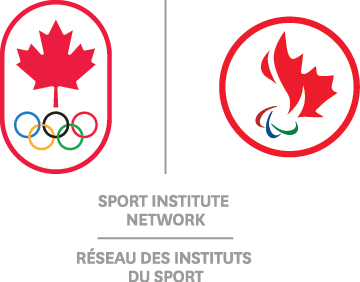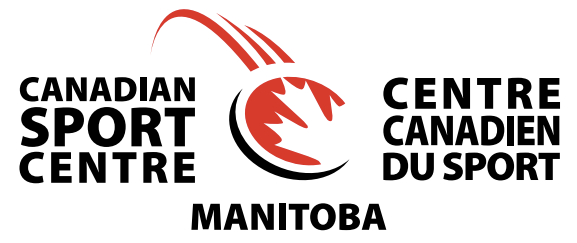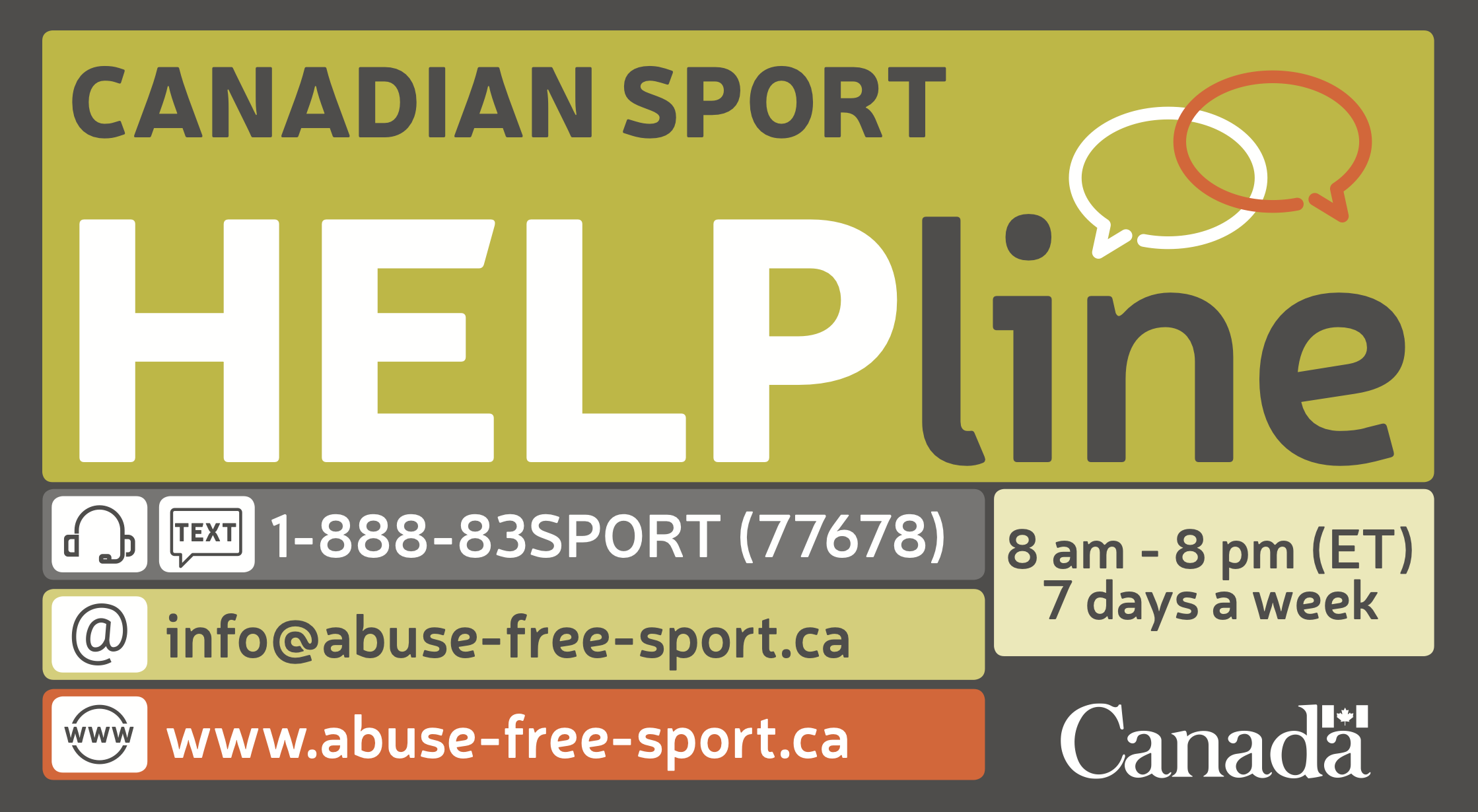Utilizing Psychological Services at the Canada Games
Psychologists will be available at the Polyclinic for the first time at the Canada Games.
Psychological Services are at the Polyclinic daily from 9 – 8 and can be found anytime outside of that as needed.
In addition to as needed servicing, we are also offering daily workshops
Sunday, August 6 through Thursday, August 10.
[bs_row class=”row”]
[bs_col class=”col-sm-6″]If you have any additional comments or questions, please contact the Head Psychologist, Dr. Adrienne Leslie-Toogood (204-229-4390, adrienne@cscm.ca) at anytime.[/bs_col]
[bs_col class=”col-sm-6″]

[/bs_row]
FAQs
[bs_collapse id=”collapse_af01-13e1″][bs_citem title=”Who is a Psychologist and why are they part of the medical team at the Canada Games?” id=”citem_217f-7b27″ parent=”collapse_af01-13e1″]
A Psychologist is someone an athlete can talk to in order to help them sort things out and make sense of their experiences. When speaking with a psychologist, they will work to listen and understand the athletes’ perspective without judging.
Psychologists can be helpful in several ways including:
1) helping keep athletes’ mentally well as they embark on their high performance journey. We all know that high performance sport is tough some days. A psychologist can help the athlete learn from their experiences and work through the emotions they feel so that rather than getting stuck, they become better, and
2) in order to be their best, everything needs to be working and aligned. Sometimes that can mean having a conversation with someone to help get the athlete back on track or re-set as being in the wrong place can have a negative impact on their performance, and
3) life happens. Sometimes things happen outside of sport that can get in the way. A psychologist can help an athlete work through that and put it away, so they can keep their focus on the task at hand, and
4) psychologists can help the athlete keep sport in perspective. Being at a multi-sport games can be overwhelming. It can definitely be helpful to talk to someone to help them keep sport in perspective, and
5) psychologists can help athletes’ with specific mental skills such as imagery and calming which can assist them in performing on demand.
[/bs_citem]
[bs_citem title=”For what areas might you make a referral to psychology?” id=”citem_0f5e-9ce6″ parent=”collapse_af01-13e1″]
Below are some examples of things you may want to refer to the psychology team:
- We know that psychological factors can either positively or negatively impact performance. If you see someone that might benefit from working through these factors, send them our way.
- We know that life does not stop when Games happen (i.e., life stressors will continue to happen, family members can become ill, people can become injured, athletes may be leaving for college after the games, etc.). We also know that games can bring on lots of life stressors (e.g., being in a village and away from parents, having a difficult time with a teammate, underperforming in the competition, getting injured, etc.). If any of these things arise, we are here to help.
- Stress, anger, and other aspects of emotional and life management are areas psychologists help with all the time; and areas that are common to high performance sport. We also know that a multi-sport environment can exacerbate these issues. Let us know if we can be of assistance.
- Athletes may show up to the games with pre-existing mental health problems (e.g., anxiety, depression, posttraumatic stress). And we also know that at a multi-sport games, our weaknesses or vulnerabilities can be triggered. Let us know if someone can benefit from support.
- Crisis situations are not predictable. We will follow a process of critical incident stress debriefing (CISD) if a situation arises during the games.
- We know that psychological factors can contribute to health and even getting run down or sick; which can for sure be negatively impacted with the stress of the games. A psychologist can help an athlete develop new habits and take things more in stride.
- In the opposite manner, psychologists can assist with psychological factors that promote positive health and well-being. Let us know if you see someone who may benefit from services in this area.
- Addictions, substance use and abuse are all areas that can arise in sport. If you run into this situation, feel free to involve the psychologist as part of the solution.
- Relationship issues can quickly arise in a multi-sport games whether that is with teammates, coaches, parents or others. A psychologist can help athletes manage and grow their capacity to deal with complexities in interpersonal communication. This is a great life skill for any athlete to master while at the games.
[bs_citem title=”What Does a Psychologist Do?” id=”citem_70b1-4879″ parent=”collapse_af01-13e1″]
- Psychologists assess problems so they can help to figure things out and suggest solutions.
- Psychologists consult with individuals, teams, families, groups, and organizations. Once they assess the problem, they may work solely with the athlete; but they also have the skills necessary to bring other people into the equation as needed.
- Psychologists apply interventions where appropriate. Once they assess the situation and who the key stakeholders are; they work to make things better.
- Finally and most importantly, psychologists provide a place where an athlete can be heard. We listen to athletes, we are empathic and we work to understand. This allows the athlete a place to work through concerns and to let go of things that are simply not helpful to performance.
[bs_citem title=”What’s involved in a Sport Psychology Consultation at the Canada Games?” id=”citem_a563-77a6″ parent=”collapse_af01-13e1″]
You can find us anytime at the games. We are at the Polyclinic from 9:00 AM – 8:00 PM every day of the games.
And we can be found anytime outside of that as needed.
Our appointments can be scheduled through the triage nurse at the Polyclinic.
Please note: if you feel it would be beneficial for someone to come with the athlete to the initial appointment, they are more than welcome.
Appointments are booked in the following manner:
- 60-minute initial assessment
- 30- or 60-minute follow-up appointment (dependent on the athlete needs)
[/bs_collapse]
For more information on Psychology, do not hesitate to visit the website of the Canadian Psychological Association, 2017 (www.cpa.ca). The framework for this information was drawn from their website. Thank you to Dr. Kristin Reynolds for preparing the first draft.
Athletes
[bs_collapse id=”collapse_082b-a05f”][bs_citem title=”When are you your best?” id=”citem_23b8-3a0b” parent=”collapse_082b-a05f”]
You have been working hard for this event and you want to perform well.
Prior to your event, take a few minutes to reflect on a time when you performed well.
What do you remember about the time when you performed well? How energized or calm do you like to be?
How did you prepare? How did you feel during the event?
Take a second to see you bringing that person here, to the Canada Games. And think about things you can build into your day to help yourself feel that way.
Think of one or two things you can do to help yourself do just that.
[/bs_citem]
[bs_citem title=”What are your goals for the games?” id=”citem_4471-bc92″ parent=”collapse_082b-a05f”]
Congratulations on making the Canada Games team!
Being at a big competition can be overwhelming at times.
Take a second to think of what will make you proud of yourself at the completion of the games.
Try to think of a few things you want to do that are within your control.
If you find yourself focusing on winning or achieving a certain result; take a minute to think about what you need to do that gives you the best chance to do well. Think about what you want to do and also how you will do it.
Focus on executing those things because you know that if you focus on that, it gives you the best chance to be successful.
[/bs_citem]
[bs_citem title=”Managing distractions at a multi-sport games.” id=”citem_d498-cdd2″ parent=”collapse_082b-a05f”]
Multi-sport games have lots of potential distractions.
Sometimes the food can be different from what you are used to and there can be big line-ups. Other times, you might miss your parents or sleeping in your own bed. People in the village might stay up later or get up earlier than you.
There are all sorts of things that can be challenging to manage at the Canada Games.
Take some time to think about which of the distractions is most likely to negatively impact your performance. Think about how you typically respond, and how you might prefer to respond. Then visualize yourself responding in a positive way to this distraction. Each morning when you wake up, think about your day ahead. Think about the parts of your day and what will be the most challenging. See yourself handling it the way you want, and then go out and get ready to handle everything that comes your way.
[/bs_citem]
[bs_citem title=”Own your games experience” id=”citem_84cc-bd1a” parent=”collapse_082b-a05f”]
There are lots of things to do at a Canada Games. Have you taken time to think about how you want to manage your time and energy at the games? Take some time to look at your practice and competitive schedule. Know when you perform your best and how much down time you typically need. Make sure to have some recovery time prioritized and some time alone if this is helpful. Once you have established your plan, think of all the fun things you want to do and when you are able to make this happen. Share your schedule with family and friends so that they know when you are available to visit and spend time with them. You might also want to think of social media and how this fits into your recovery plan. This is your Canada Games. You have worked hard. Own your time so you can perform your best. You deserve it!
[/bs_citem]
[bs_citem title=”Harnessing your nerves.” id=”citem_9ef9-08ce” parent=”collapse_082b-a05f”]
You are going to feel nervous at the Canada Games at some point. That is expected and natural. Only you know when this positively and negatively impacts your performance. It is not about whether you get nervous, but when. Be honest with yourself and make a plan for how you want to manage it when the nerves become too much. Take some time to do some deep breathing (you may want to try an app such as Breathe2Relax or Calm), and see yourself managing this anxiety positively in those situations. Think about what you can do in the field of play to calm yourself throughout, before and during your competitive event.
[/bs_citem]
[bs_citem title=”How do you want to be remembered?” id=”citem_50e5-a853″ parent=”collapse_082b-a05f”]
You are at the Canada Games. When you reflect back on your experience at the games, how do you want to remember it? What do you want to be remembered for and what do you want to tell people about how you handled the challenges of the games environment? Make a few notes somewhere that remind you of this and think about how you can remind yourself of this throughout the games. Think about something small you can do each day to maintain your perspective at the games and remember what is most important to you. You have many other important aspects of your life. You are going to do your best and learn from your experience at the games, regardless of what happens.
[/bs_citem]
[bs_citem title=”Failure can make you better.” id=”citem_3bf9-5ded” parent=”collapse_082b-a05f”]
Sport is an opportunity to be your very best at something. You obviously have a unique talent as you are at the Canada Games. We know that the journey of high performance sport includes both devastating lows and phenomenal highs. Learning to manage the losses more positively along the way can be incredibly helpful to your sport success. Said differently, every time you compete it is an opportunity to learn and get better. Start to have a plan in place to learn from every experience you have. Debrief after your event and reflect on what you did well, what you want to do better, how you will do that, and also what you learned. If you did not perform the way you wanted, be kind to yourself. Think about what you might say to a teammate or someone you care about; and ask yourself “what do I need right now”. In those moments, life has already made it difficult for you and the last thing you need is to beat yourself down anymore. Plus, we know that these past experiences will become the foundation you stand upon to do great things moving forward. So keep learning, keep getting better and allow experience to shape you into the amazing performer you are meant to become.
[/bs_citem]
[bs_citem title=”Dealing with injuries that take place at the worst time.” id=”citem_c409-26bc” parent=”collapse_082b-a05f”]
When injuries happen, it can be devastating. There is no such thing as a good time or place for an injury. Injuries can bring on many emotions and that is okay. Allow yourself to feel them, and focus on the parts you can control. Sometimes it can be helpful to talk with someone when something happens that is not expected.
[/bs_citem]
[/bs_collapse]


